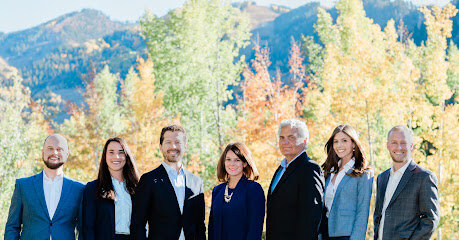Best Marriage Lawyers in Aspen
Share your needs with us, get contacted by law firms.
Free. Takes 2 min.
Free Guide to Hiring a Family Lawyer
List of the best lawyers in Aspen, United States
About Marriage Law in Aspen, United States
Marriage in Aspen, United States is governed by state laws, which may vary from other states. When it comes to marriage, there are legal obligations and benefits that come with the commitment. It is important to understand the laws and regulations surrounding marriage in Aspen to protect your rights and interests.
Why You May Need a Lawyer
There are a number of situations where you may require legal help in the field of marriage. Some common reasons include prenuptial agreements, divorce proceedings, child custody disputes, and adoption processes. A lawyer can provide guidance, support, and representation to ensure that your rights are protected and that the legal process is navigated smoothly.
Local Laws Overview
In Aspen, United States, marriage laws cover various aspects such as marriage requirements, legal rights and obligations of spouses, divorce procedures, and child custody arrangements. It is important to be familiar with these laws to ensure that your interests are safeguarded in case of any legal disputes or issues.
Frequently Asked Questions
1. What are the requirements for getting married in Aspen, United States?
Each state has its own requirements for marriage, including age restrictions, blood tests, and marriage license application. It's important to check the specific requirements in Aspen before getting married.
2. How does divorce work in Aspen, United States?
Divorce procedures in Aspen involve the division of assets, child custody arrangements, and alimony payments. It's advisable to seek legal help in navigating the complexities of divorce proceedings.
3. Can same-sex couples get married in Aspen, United States?
Yes, same-sex couples have the legal right to marry in Aspen, United States following the landmark Supreme Court decision in 2015.
4. What is a prenuptial agreement and why should I consider getting one?
A prenuptial agreement is a contract that establishes the property and financial rights of each spouse in the event of divorce. It's recommended for couples with significant assets or children from previous relationships.
5. How is child custody determined in Aspen, United States?
Child custody is determined based on the best interests of the child, taking into account factors such as parental fitness, child's preference, and parental involvement in the child's life.
6. What are the grounds for annulment in Aspen, United States?
Grounds for annulment in Aspen include fraud, bigamy, underage marriage, and incapacity to consent to marriage.
7. How can I change my name after marriage in Aspen, United States?
You can change your name after marriage by updating your social security card, driver's license, and other legal documents with your new name.
8. Can I adopt a child as a married couple in Aspen, United States?
Yes, married couples can adopt a child in Aspen, United States following the legal adoption procedures and requirements.
9. How can I protect my assets in case of divorce in Aspen, United States?
You can protect your assets through a prenuptial agreement or by seeking legal advice on asset protection strategies before getting married.
10. What are the legal rights of spouses in Aspen, United States?
Spouses in Aspen have legal rights such as spousal support, property division, and inheritance rights. It's important to understand these rights to protect your interests in marriage.
Additional Resources
For more information on marriage laws in Aspen, United States, you can contact the Aspen County Clerk's Office or consult with a local family law attorney for legal advice and guidance.
Next Steps
If you require legal assistance in the field of marriage in Aspen, United States, it is recommended to schedule a consultation with a qualified family law attorney who can provide personalized advice and representation to address your specific needs and concerns.
Lawzana helps you find the best lawyers and law firms in Aspen through a curated and pre-screened list of qualified legal professionals. Our platform offers rankings and detailed profiles of attorneys and law firms, allowing you to compare based on practice areas, including Marriage, experience, and client feedback.
Each profile includes a description of the firm's areas of practice, client reviews, team members and partners, year of establishment, spoken languages, office locations, contact information, social media presence, and any published articles or resources. Most firms on our platform speak English and are experienced in both local and international legal matters.
Get a quote from top-rated law firms in Aspen, United States — quickly, securely, and without unnecessary hassle.
Disclaimer:
The information provided on this page is for general informational purposes only and does not constitute legal advice. While we strive to ensure the accuracy and relevance of the content, legal information may change over time, and interpretations of the law can vary. You should always consult with a qualified legal professional for advice specific to your situation.
We disclaim all liability for actions taken or not taken based on the content of this page. If you believe any information is incorrect or outdated, please contact us, and we will review and update it where appropriate.








